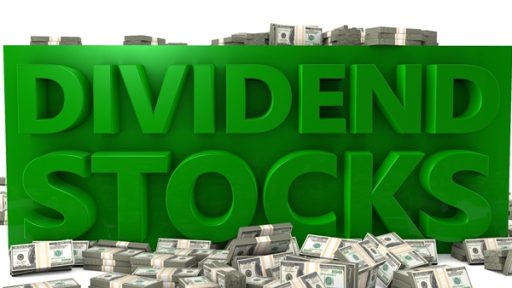- Home
- >
- Stocks Daily Forecasts
- >
- 7 Best Dividend Stocks to Buy for 2017

7 Best Dividend Stocks to Buy for 2017

1. AbbVie - Dividend yield: 4%
The pharmaceutical sector is heaving a sigh of relief. There’s little wonder why. Hillary Clinton said her administration would clamp down on rising drug prices. That means a number of pharma stocks with strong yields now look even better for 2017. AbbVie Inc. (ABBV) stock is shooting higher in response to the election. The dividend only pads that lead. Slow-but-steady growth is a basic part of the equation.
AbbVie successfully completed the acquisition of Stemcentrx in June, which bolsters its portfolio of oncology treatments. The ability to make similar moves going forward is now less certain.Be that as it may, AbbVie looks like a tremendous dividend name. It’s only been around since 2013, and yet its payout has grown by more than 40% in that short time.
2. Chevron - Dividend yield: 4%
This one is a bit more complicated. Chevron Corporation (CVX) and other energy names will benefit from a pro-fossil fuel policy. Recession or trade wars, however, will sap demand for oil.For now, though, oil prices appear to have stabilized. As an integrated energy major, Chevron’s downstream business offers a bit of a hedge against weakness in crude oil anyway.Oil prices are cyclical — even if the cycles can take a painfully long time to turn. And a dividend yield of more than 4% is mighty attractive in an ultra-low interest rate environment.Perhaps best of all, patient investors — that is, buy-and-hold types — can look forward to a steady drumbeat of payout hikes. Through thick-and-thin energy markets, CVX has raised its dividend for 30 consecutive years.
3. General Electric - Dividend yield: 3%
As long as international trade policy doesn’t go off the rails, General Electric Company‘s (GE) long-term strategy sounds too good to ignore. But investors will need to remain patient. General Electric’s earnings underscore the difficulty of shedding the firm’s financial businesses at a time when the oil and gas industry is depressed. GE is putting a lot of distance between it and the oil and gas business by merging it with Baker Hughes Incorporated (BHI). That helps mitigate some of the macroeconomic risk from the industry.
4. Merck - Dividend yield: 2.8%
Merck & Co., Inc. (MRK) was an attractive dividend name even before the latest developments. Indeed, it is having an outstanding year, with gains more than 20%. If there’s a downside to that, price appreciation has lowered the yield on the dividend to right around the 3% mark. Take price appreciation, throw in the dividend and MRK — a component of the Dow Jones Industrial Average — looks good for better-than-average total returns.
5. Pfizer - Dividend yield: 3.6%
Pfizer Inc. (PFE) is another pharma giant that also happens to be a Dow component. Shares weren’t having a very good year — up until Wednesday. Now, sentiment couldn’t be high. n addition to the outsized yield, PFE has fundamental reasons to become a part of your equity income portfolio. It has a strong pipeline with 94 clinical studies under way. Furthermore, a buyout bender — which have already been concluded — promises long-term price appreciation to go along with a steady dividend stream. In this year alone, PFE bought Medivation Inc. for $14 billion and Anacor Pharmaceuticals Inc. for $5.2 billion.
6. Wells Fargo - Dividend yield: 3%
Wells Fargo & Co. (WFC) was a buy even before the outcome of the election. No, it might not be the most popular name after its phony accounts scandal, but that actually works in a value investor’s favor. It’s still a quality business with a quality stock. Bank crises eventually blow over. This, too, shall pass. Shares in WFC went to $46 from $51 on the news. That has the dividend up to a very attractive level.
7. Verizon - Dividend yield: 4.9%
The telecommunications sector is a haven for equity income investors. You can’t begin any discussion of dividend stocks without considering names like Verizon Communications Inc. (VZ). As much as traditional telecommunications is a poky business, VZ is making some interesting moves. Most notably, it struck a deal to acquire the core properties of Yahoo! Inc. (YHOO) to drive new revenue streams and position itself for the future.
 Varchev Traders
Varchev Traders If you think, we can improve that section,
please comment. Your oppinion is imortant for us.






